Jeff talks about how paramedic is evolving as a profession, what it’s like to rescue people deep in the bush, and why he asks patients about broken lights, or the food in the fridge.
“What do you like the most about being a paramedic?”
“It’s never the same. Every day is a new challenge and a new situation. When I first started, I worked in a town of about 20,000. We got a lot of nursing home calls. Then I spent a year in a much smaller town. There was a lot of trauma, snowmobile accidents, that kind of stuff. It was a totally different set of problems. In the first town, you’re trying to figure out how to get someone down from an apartment building or maybe there is a medical issue that can be taken care of where they are. Whereas in the second town you’re trying to figure out how you are going to get seven kilometres back in the bush to find the guy who hit the tree with his snowmobile. Now that I work as a community paramedic in the county, every patient has a different problem, and I am trying to figure out how I can help link them to the services they need.”
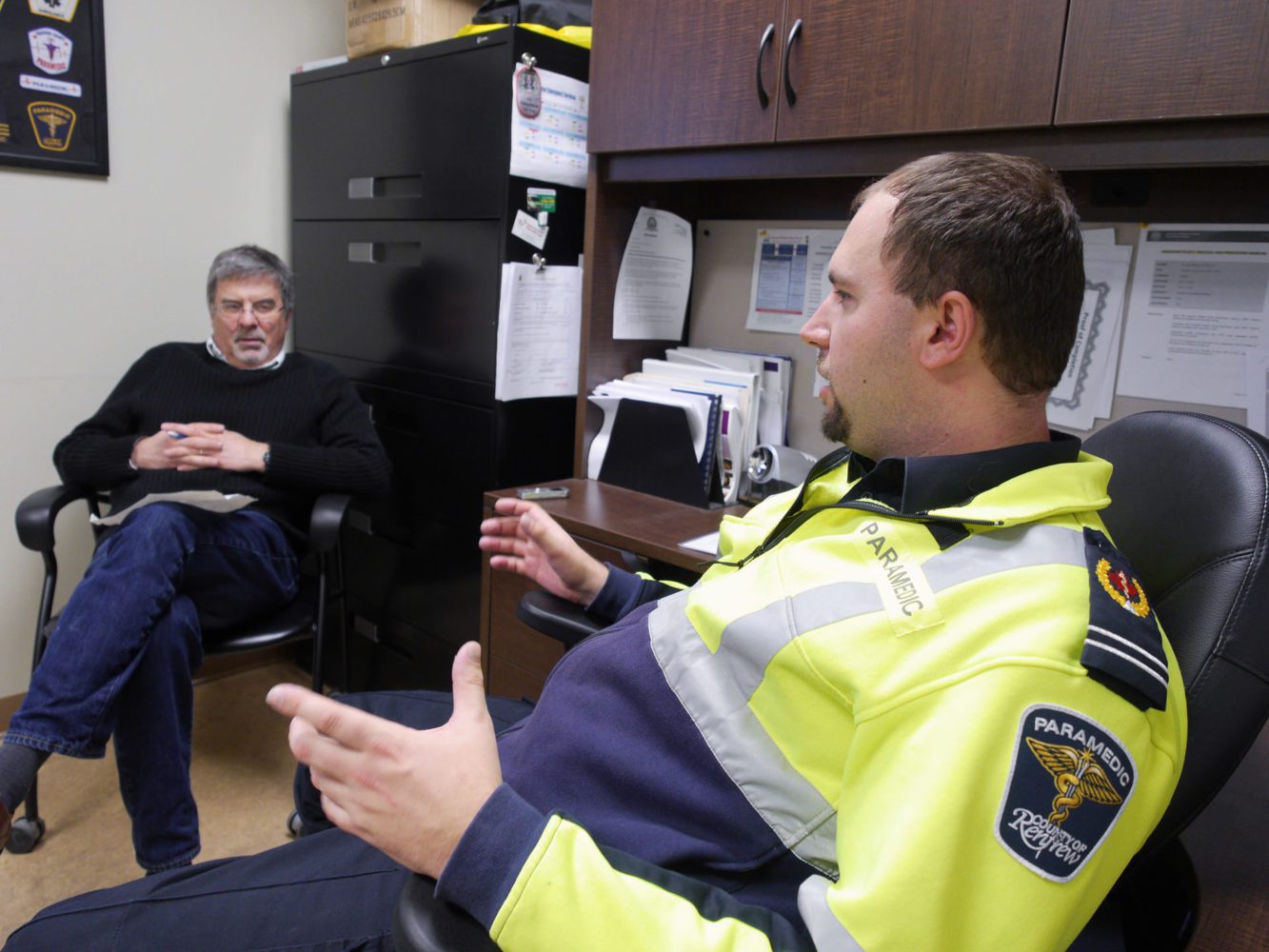
“Do paramedics get post-traumatic stress disorder?”
“It’s an area that I think many paramedics struggle with talking about. It’s something that traditionally was never spoken about because you didn’t want to be perceived as weak.”
“During my 10-year career, awareness and training around PTSD has been evolving, but we still have lots of work to do. When I started, you just didn’t talk about it. I can remember doing a really bad call with a great paramedic and afterwards he just went into a different room and sat by himself. That was his coping mechanism. But I think now we are starting to realize that we need to talk about things, work them through. We are in the process of setting up a peer support team who will receive extra training, and will be available to any paramedics who feel they want to talk. However, there can be all the services in the world, but if you’re not willing to use them…?”
“Changing the culture so that people aren’t seen as weak for using these services, that’s something that we really have to work on as a profession.”
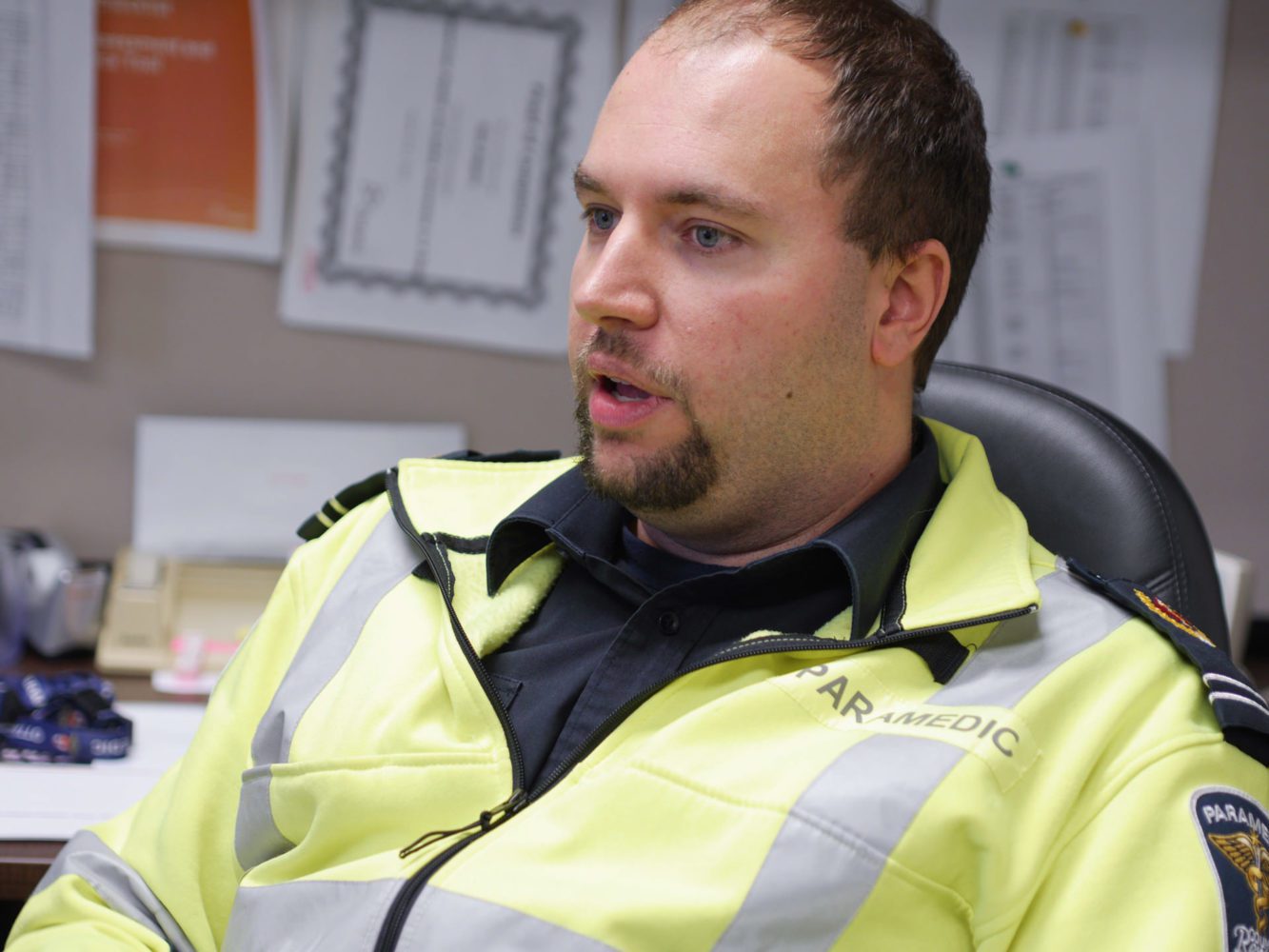
“Do you bring your work home?”
“Absolutely! You are always going to bring a certain element of it home. I have a very understanding wife who loves to listen. Since I’ve had kids, I go home and give them a little tighter hug.”
“Which kinds of calls bother you the most?”
“Anything with kids; especially trauma. Since I’ve had kids, they affect me a lot more. Suicides stay with me. It’s not just visualizing it after the fact, but it is also knowing their background stories and dealing with the families afterwards.”
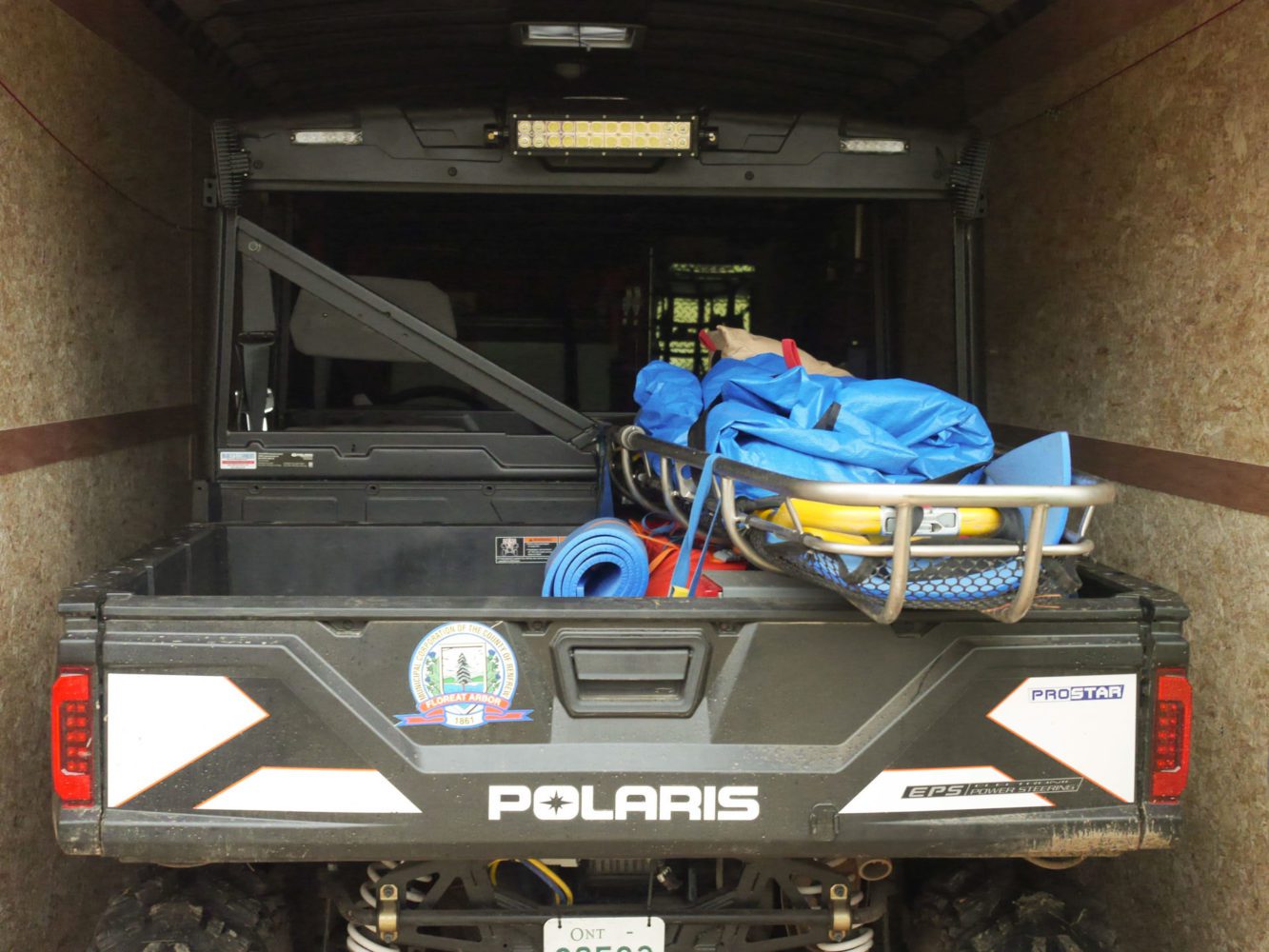
“Our county has areas that are very difficult to access, and people like to be out in those areas, whether it’s hunting, hiking, driving all-terrain vehicles, camping. We’re very close to Algonquin Park and have vast areas of crown land that are completely uninhabited. So we have a highly specialized utility terrain vehicle to get to those areas, and a remote access treatment and transport team. They are specially trained in survivor skills and can stay overnight in the bush.”
We also have a new drone program that was launched this year. The drone can get to the scene of a motor vehicle accident. Accidents can be spread over hundreds of feet.
“There can be wreckage in the middle that you can’t get to because there could be fire and gas spills, and to walk around is very dangerous. The drone can give us a view of everything that’s going on. We can also use the drone in search and rescue. The group of paramedics overseeing the drone program are looking at different ways of expanding it. Now the drone just has a camera, but they are talking about strapping on a defibrillator that can be dropped onto the scene if someone is having a cardiac arrest or having the capability of dropping epinephrine pens, for example. Someone who is with the person in distress could be on the phone with an emergency responder. They could be talked through how to use the supplies that are dropped. Getting this equipment there would be faster than with land vehicles because you don’t have to follow the roads.”
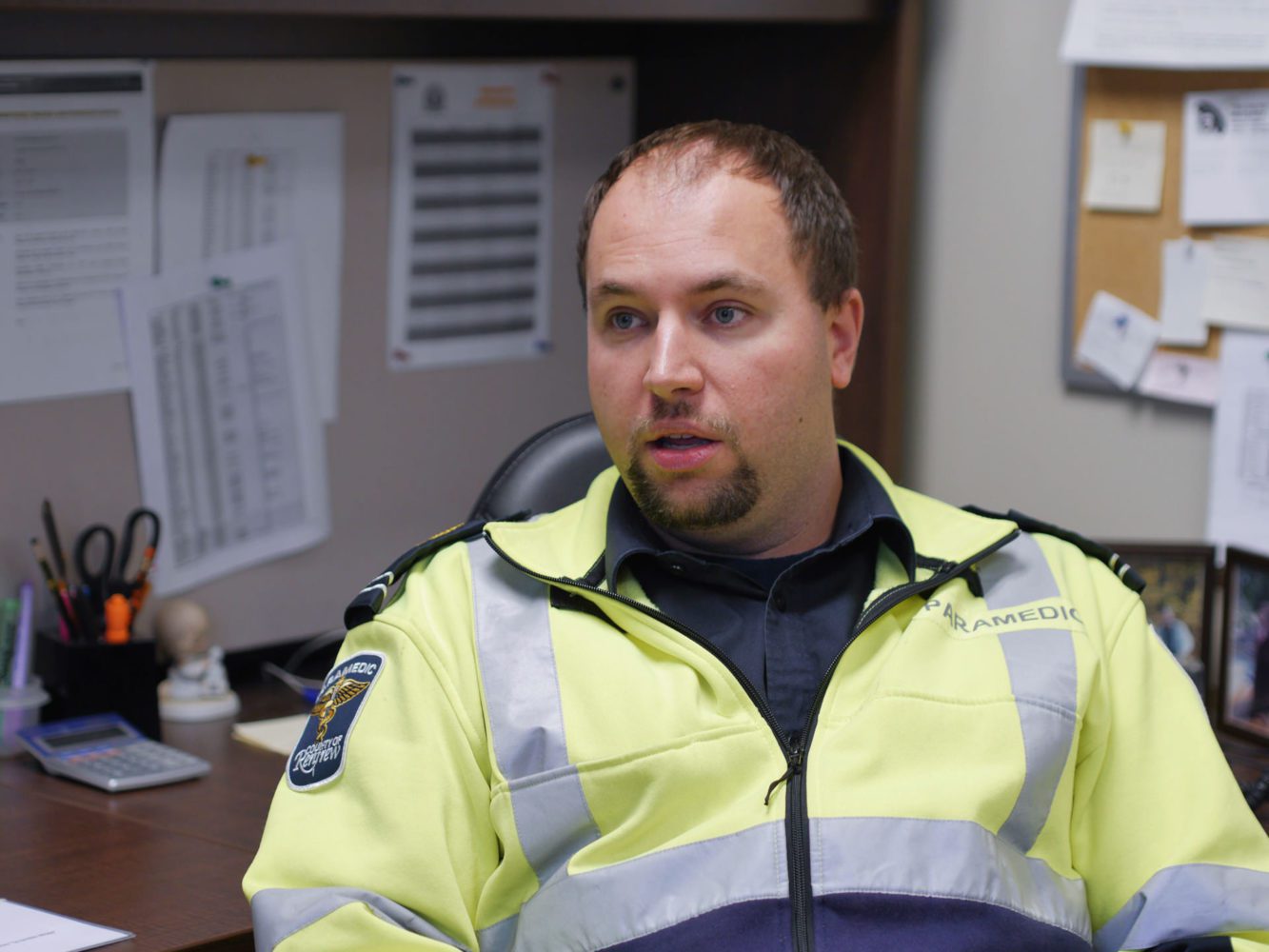
“What’s the main reason for frequent ambulance trips to the emergency department?”
“I think the main causes are social. Maybe people don’t have any family around. I know for some of our home visit clients, we’re the only people they see in a month. If we can see them in their house and keep them there, that prevents all sorts of other potential problems.”
“A lot of people with mental health issues are isolated and financially struggling. There are places in the far regions of the county where there are dirt floors, there is no heat, no running water. A couple of years ago, one of our paramedics went to a call, picked the person up, looked around and said, ‘Okay, what’s going on here?’ He brought him into the hospital and then heard a couple days later that he was back home. So his crew went out and checked in on the man. And yeah, he was home, and he had received a new medication and maybe some blood work. But he was still in the home that had no hydro, no water, had no lots of things. So they set up a generator and helped bring wood in. They were helping while on standby, so they were still available for emergency calls.”
“As a community paramedic, I can go in and sit with someone for an hour, and as long as I don’t get an emergency call, that’s fine.”
We can go in and talk not only about the wound, but about the food in the fridge, about the light bulbs or the smoke alarms that haven’t been changed.
“We can take a generalist approach and look at where the red flags are. Then we can hopefully prevent that fall or what have you.”
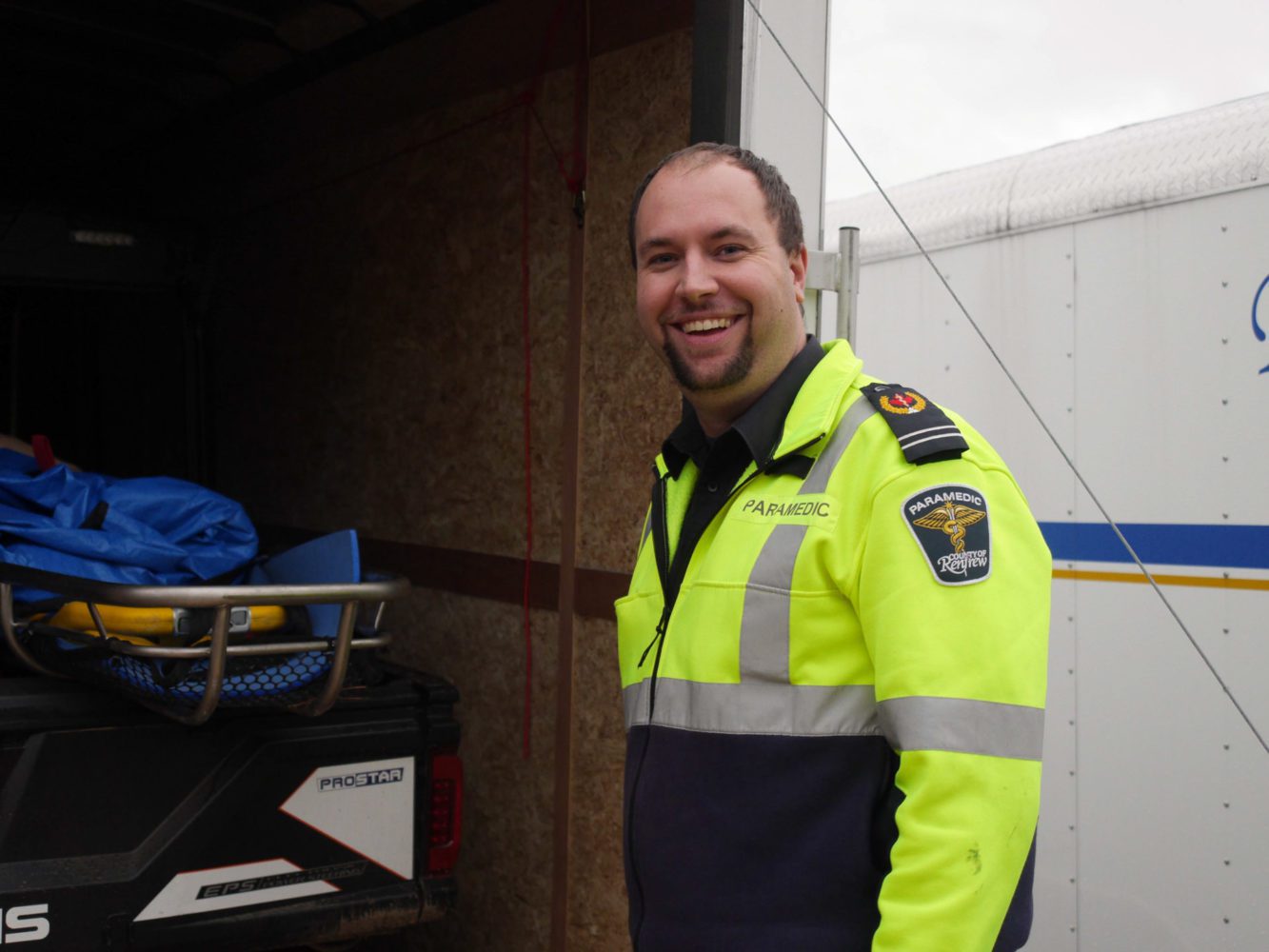
I think paramedics as a profession are at a really big turning point right now.
“We’re stuck between being technicians and clinicians. A technician is task orientated and does the job. A clinician does the job, but also looks at the big picture as to why things are happening, what the underlying causes are, and develops new methods of prevention and treatment. We have a skill set where we’re able to intubate, we carry narcotics, but we’re just getting into the clinical side.”
“It shocks me that we don’t have a College of Paramedics in Ontario. I did three years of school and I am intubating somebody and starting an IV and running medications and I don’t have a regulatory body?! As we become more and more involved with preventative care, it’s imperative that we are able to have more input into the standards and expectations that guide us. It’s also very important for patient safety because the college would allow for peer-based evaluation and assessment.”


The comments section is closed.